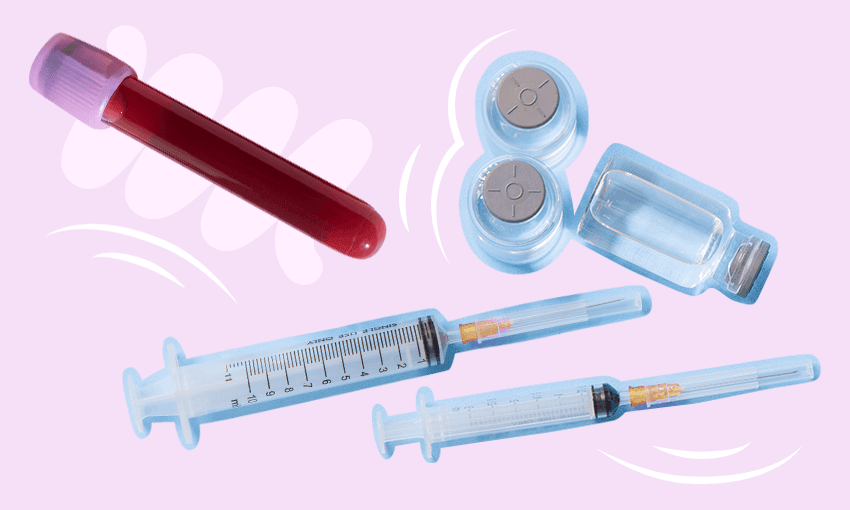The parents of a sick baby wanting to avoid using ‘vaccinated blood’ are having their case heard today in the High Court. Haematologist Dr Jim Faed and the Immunisation Centre’s Nikki Turner explain the science behind the case.
Let’s start at the beginning: what’s a ‘directed blood donation’?
Jim Faed: Directed blood donations are blood donations that are arranged by an individual, family or group of people for a named person. Directed blood donations are rare in New Zealand. Most requests for directed donations have come from parents who wanted to provide blood for their newborn baby or infant before surgery or some other health procedure. In the past, most requests have arisen from anxieties over the risk for HIV infection in the 1980s-90s and hepatitis C in the 1990s. However, when the risks of being infected by one of these viruses by a transfusion in NZ are explained, most accept that the risks are much smaller than imagined. Most parents have then accepted a transfusion of blood components provided by the Blood Service.
Why isn’t directed donation recommended?
Directed donation is not recommended for many reasons, but the most important one for the recipient is the concern over safety. The safety of blood is a continuing focus for all Blood Services. Requests for directed blood donations raise additional safety issues. They arise because the “directed donors” may consider themselves in good health and then decide they are safe to give blood. When they come to answer the blood donor questionnaire and the verbal questions in the standardised donor screening process, a person may be tempted to answer “no” – this does not apply to me, instead of “yes” – it does or could apply to me. People being screened before being accepted as a “directed donor” may be tempted to give answers that will ensure they can give blood on that day.
What other issues are there?
Although the term blood transfusion is here to stay, whole blood is rarely transfused in modern hospitals. Most hospital transfusions are given as blood components – red cells, plasma, platelets or cryoprecipitate. Occasionally a mix of several blood components is given in the proportions needed by an individual patient. Transfusing blood components is the safest and most cost-effective way to provide for the transfusion needs of hospital patients.
When directed donations are requested, it would be very difficult to plan to have directed blood components for a surgical procedure. A patient undergoing cardiac surgery may need one or more of these specialised blood components at the end of surgery to stop bleeding. Platelets have a high cost of collection, testing and supply, and the current approved price for hospitals is greater than $800 for each item. The Blood Service is most unlikely to be willing to collect platelets from directed donors and have the platelets available on a just-in-case basis. Health issues would arise for an inexperienced donor.
Ultimately, there are no shortcuts to safety! That is why the Blood Service exists as a separate entity from the hospitals and other healthcare providers – to achieve the required levels of safety.
Can the products of the Covid-19 vaccine end up in the blood stream?
Nikki Turner: There is no evidence of harm from antibodies being present in blood, which are produced in response to both natural infection and vaccination. Although unlikely to be present in blood products, any components or products of the vaccine that may potentially be present in blood (lipid nanoparticles, mRNA or the spike protein) would not be harmful if they were to be transferred through blood transfusion.
Are there risk factors with donor blood?
There are known risks associated with transfusions from donor blood such as an allergic reaction, or the receiver of the blood becomes infected with a virus if the blood has not been effectively screened. This is not related to the Covid vaccination status of a donor. Although unlikely to be present in blood products, any components or products of the vaccine (nanoparticles, mRNA or the spike protein) would not be harmful if they were to be transferred through blood transfusion.
Comments were provided to the Science Media Centre and abridged for length.

